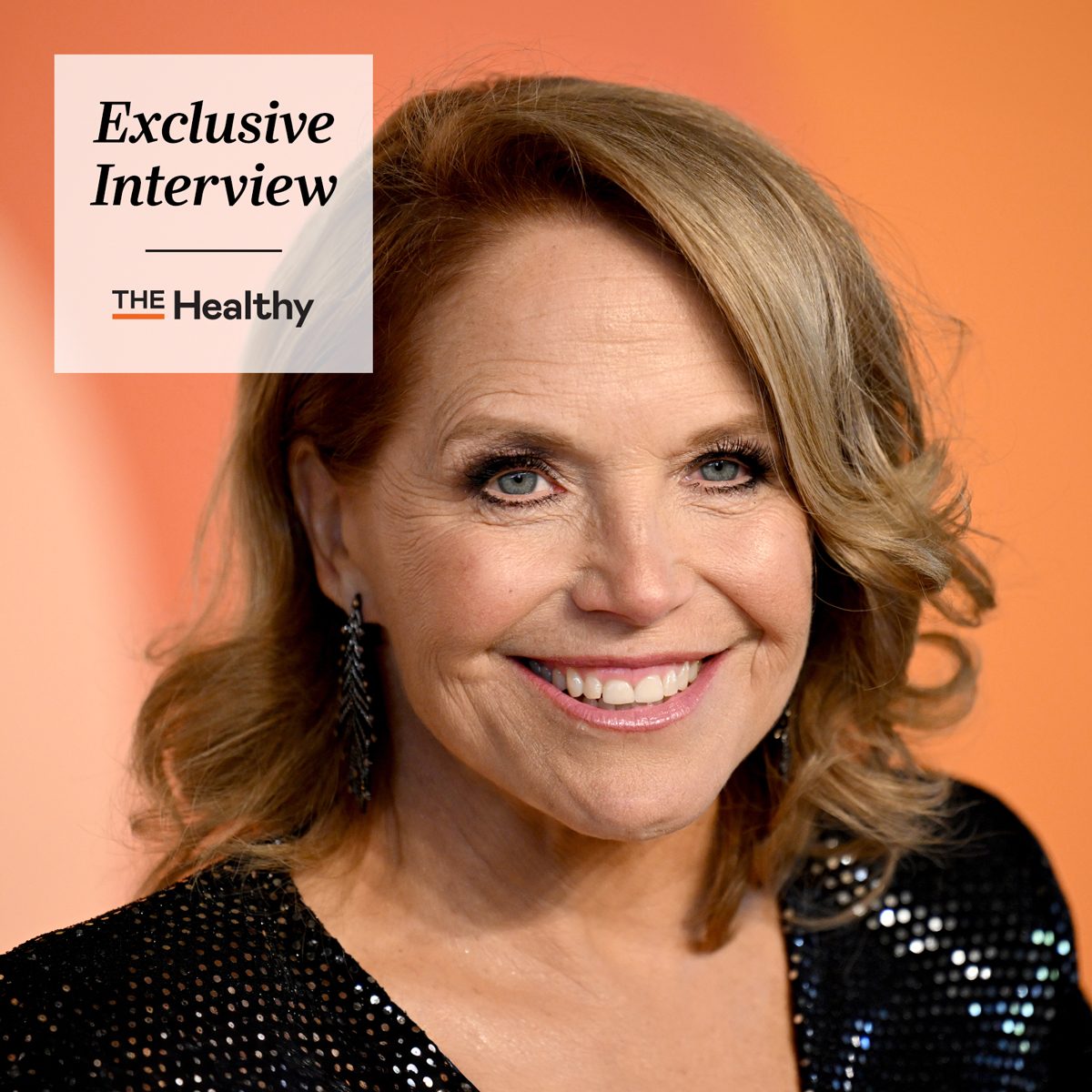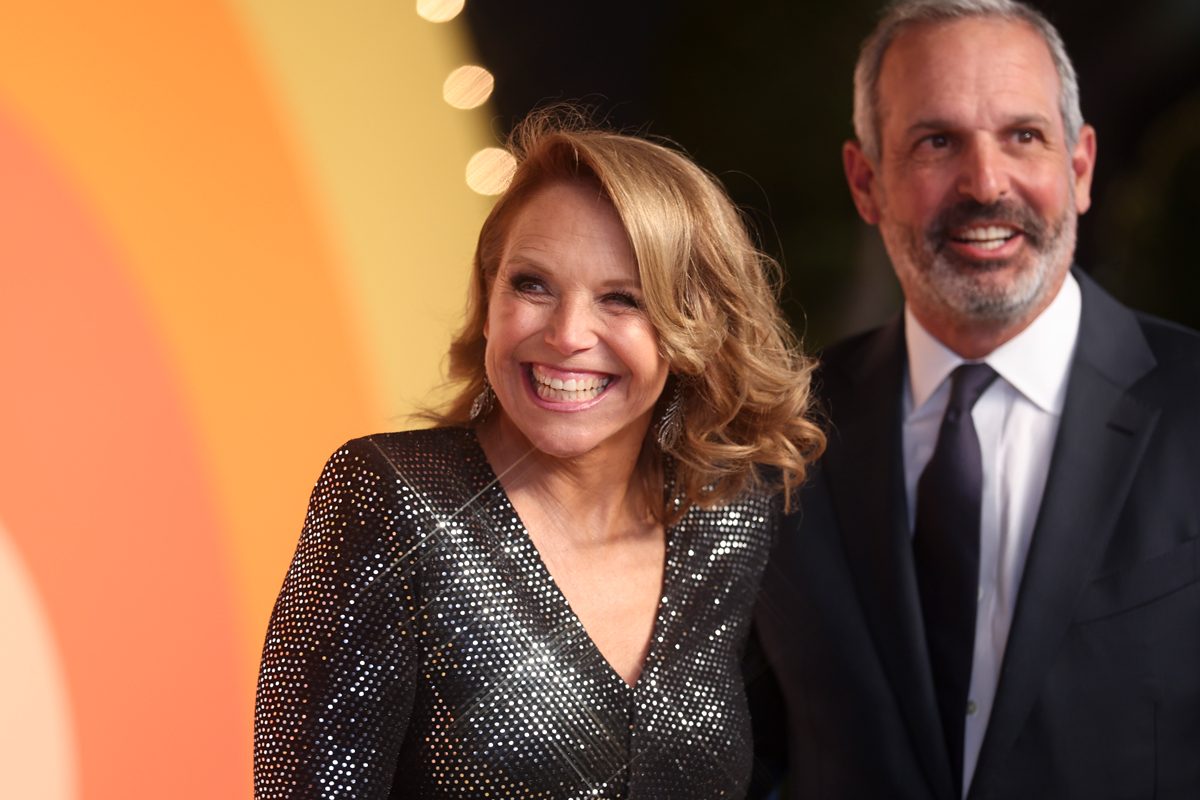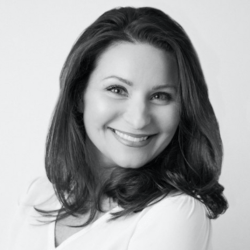The forever screen queen remains committed to a topic she made mainstream more than 25 years ago.

Katie Couric on the Necessity of Scientific Research

If the current news climate makes you nostalgic for the days before social media, millions of her followers know Katie Couric’s clear-eyed take is still accessible.
With her production company Katie Couric Media, frequent Instagram Lives, and her Wake-Up Call newsletter, Couric is still active in conversations she supported, or started, even decades ago. One of those is the necessity for colorectal cancer screenings after her first husband, Jay Monahan, passed away in 1997 from colon cancer. Many early-aughts TODAY viewers will remember Couric’s own colonoscopy, which she chronicled for the airwaves in 2000 to demystify the procedure for Americans.
As she does each March, Couric helped kick off National Colon Cancer Awareness Month by joining more than 300 colon cancer patients, survivors, and caregivers from across the country at the Cologuard Classic by Exact Sciences, a PGA TOUR Champions tournament that took place in Tucson earlier this month. There, she participated in events and activities to support the tournament mission and tell the stories of colon cancer honorees in attendance.
Cologuard is the maker of colorectal cancer screening kits, which even many physician practices support as an effective screening method. Colorectal cancer screenings should start at age 45 in most cases, unless an individual has family history or medical history that indicates otherwise. Speak with your doctor about when you should start screening.
Heading into the Cologuard Classic weekend, Couric talked with The Healthy by Reader’s Digest about why almost three decades after bringing this topic mainstream, she’s keeping it front and center. One reason is her grandson, Jay, who will turn a year old this weekend.
The Healthy by Reader’s Digest: Katie, we’re always so excited to talk with you about this topic.
Katie Couric: Thank you for your interest.
The Healthy: We follow you religiously on social media, and we always appreciate when you’re vocal about important topics. When we start to think about conditions like colorectal cancer and breast cancer, which you were treated for starting in 2022, what do you think are the implications of medical research possibly being affected by the current government cuts?
Katie Couric: It’s devastating. I think that federal funding is really crucial to a lot of these research programs, and this is where great ideas for better diagnostic tools, better treatment options, and all kinds of important solutions for diseases are assisted. I’m not an expert on the NIH [National Institutes of Health] funding yet—I have to read much more about it—but these scientists need our support. They’re protecting our greatest national resource, which is our people.
Money has been cut from childhood cancer research, where we’re making so much progress, and I think this is a moment for science where it should be all hands on deck. We’re at this crucial inflection point where technology, things like AI and other genomics, are coming together to move science forward faster, and to put the brakes on that in any way, I think is a real travesty. So I hope that these cuts will be reconsidered, and I hope that the private sector becomes even more active in funding this kind of research. We as a nation need to just get our priorities straight, and I think keeping people healthy is one of the most important things we can do as citizens.
The Healthy: You’ve always been a woman for women, and we just recently celebrated International Women’s Day on March 8. What about what’s happening in the conversations around women’s health and women’s roles in our society?
Katie Couric: Well, I think we as women have seen some pretty significant setbacks recently in terms of reproductive rights, in terms of medical care that all women deserve, [and] in funding of women’s diseases … Men have been traditionally studied and get the priority when it comes to investigating various diseases and illnesses. And I know that there was an effort to at least try to level the playing field—I think women are so different biologically, but they’ve always been treated in science too often as just smaller men with boobs.
I’m afraid rolling back those funds to study women’s diseases is really unfortunate. I just think there is a certain segment of the population that’s really pushing women backwards and trying to force them to stay in more traditional roles, and I think the fact that women control their own destinies and make their own choices, that’s one of the beauties of feminism and equal rights. But to somehow marginalize the tremendous potential of women to make critical contributions to our society is really a step backwards, and very concerning.
The Healthy: There are so few cancers that we can screen for, and last year you talked to us about the importance of screening and the benefit of at-home tests like Cologuard. Have you heard from people who, because maybe there is a little bit of skepticism, are asking “Does this really work? It’s not the same as a colonoscopy.”
Katie Couric: What’s most important is the screening that gets done. I think Cologuard has been a real lifesaver for people. Some people can’t afford a colonoscopy covered by insurance, and Cologuard requires no out-of-pocket expense, as far as I know. It’s, as I said, a huge lifesaver for people—some people can’t take off work; some people can’t find childcare. It’s just a really great option.
I have talked to a lot of people who have chosen that option and feel really happy that they did. Of course, I also talk to people who have had colonoscopies, and I’m approached often by people who say, “The doctor found a polyp and they believe this colonoscopy saved my life.” So, I am really gratified when I hear from people who got screened—by whatever method they decided to pursue—and that they either got a clean bill of health, or they caught a cancer early, or they found a pre-cancerous situation that saved them a lot of heartache and pain and expense later on. I hear from people all the time. People are very comfortable telling me everything about their colons.

The Healthy: We love that about you! We still think of you regarding colonoscopies because it was just a huge contribution that you gave us all those years ago.
Katie Couric: I’ve tried not to just have a one-and-done situation. I really stayed on people’s radar and tried to make sure that this is something you say over and over again. Because it’s easy for people to put it off, to forget, to say, “I really don’t want to do that.” But I always think of myself as some kind of nagging fishwife with the rolling pen saying, “You get your colonoscopy!” or the guy yelling on his front yard, “Get off my yard. Get your colonoscopy!” Because it is so lifesaving, it’s so preventable if people just took advantage of screening. A lot of people don’t. The age was lowered to 45 and still, only 20% of people between the ages of 45 and 49 have gotten screened, so that message really needs to get out. I think 59% of people over 50 have, but that means 40% haven’t. So we need to really drive home this lowered age.
The other thing that’s really interesting and also worrisome is that a lot of younger people are being diagnosed with colon cancer. People under the age of 50, people, sadly, in their twenties and thirties. Doctors and scientists and researchers really don’t know why; there’s some theories about what’s happening. But that makes me feel that younger people need to be educated about symptoms, and even if they don’t have a family history, no family history is no guarantee. I think it’s something like 75% of people who are diagnosed with colon cancer have no family history. I think sometimes they say, “It’s not in my family,” and then it’s this false sense of security, but everyone needs to get screened. It wasn’t in Jay’s family and, see, look what happened.
The Healthy: You became a grandmother shortly after we talked with you last year. Has that changed at all how you think about your health and longevity?
Katie Couric: Oh yeah, I think it does. I mean, I turned 68 this year. I think about mortality more than I used to. To use the golf metaphor: I’m on the back nine, but my husband [John Molner] says, “Actually, you’re more like the back four.” I’m always like, “Thanks a lot!”
I want to be around and healthy and there for my daughters and my grandson and whoever else might come along. Something I’ve thought about ever since Jay died and I became a single parent, it’s been really important for me to try to take care of myself. And I want to make sure that my daughters get the proper screening for colon cancer because Jay was 42 when he died and 41 when he was diagnosed. So Ellie’s already gotten screened. She got a colonoscopy at 31—you get it 10 years before your first-line relative. Carrie will get one as well. And it also makes me grateful that we are healthy, and hopeful that we’ll stay healthy, because that’s really all that matters. If you don’t have your health, you don’t have anything. So yeah, I think it’s something I think about a lot.
I want to take Jay [her grandson] to his first Broadway play. He’s only one, so it’s going to be a few years away, but I want to be as active as I can as I age, and I try to eat right and exercise. And I’ve been lifting weights because losing muscle mass happens through age.
The Healthy: You were always known for having the strongest arms in a sleeveless top!
Katie Couric: I’m trying to do the right thing, but there are no guarantees. People take care of themselves, and still stuff happens. So I’m trying to really just do everything I can, but more importantly, appreciate every day.
The Healthy: You make us look forward to aging. Tradition tells us we should dread it, but every birthday is a blessing.
Katie Couric: It’s true. I know that very well. When I ask my father-in-law how he’s doing, he always says, “Well, I’m still vertical,” so I’m trying to stay vertical as long as I can.
For daily wellness updates, subscribe to The Healthy by Reader’s Digest newsletter and follow The Healthy on Facebook and Instagram. Keep reading:
- Chelsea Handler Celebrates 50 Years: “There’s So Much Proof of Positivity in My Life”
- Clea Shearer Continues To Share Her Breast Cancer Journey: “I Was So Desperate for Information”
- Lil Jon Just Remixed “Get Low” To Get Your Attention—Because He Cares
- Selma Blair on Progress in Medicine and Strength
This interview has been edited for length and clarity.
















